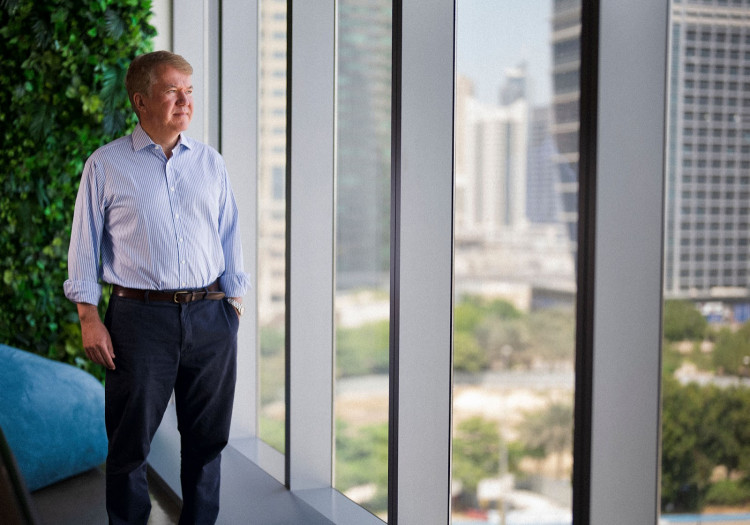Just two weeks before the end of 2021, the UAE announced it was switching to a 4.5-day work week from 1 January 2022. Shifting from a Friday and Saturday weekend to a new work week running from Monday through to half a day on Friday, the government was hoping to better align with global markets. The move makes the UAE one of the first nations globally to adopt a 4.5-day work week, and brings the country more in line with western working schedules.
The change was immediately implemented by the public sector, but has also been adopted by many within the private sector. Under the new schedule the Dubai and Abu Dhabi stock exchanges now operate between 10 a.m. and 3 p.m. Monday to Friday, in a move ministers are hoping will lead to better growth and a rise in GDP.
"We believe that this will allow our economy to attract talent and to attract capital," Abdulrahman Al Awar, the UAE's minister of human resources and Emiratisation told Bloomberg TV when the announcement was made. Adding that the shift "will allow further flexibility and...more alignment with the world economy."
So, what has this change meant for corporations with interests in the region? For multinationals and those in the private sector, this shift allows them to implement a weekend for employees as they see fit.
"It's a move that makes the UAE more competitive in the global market, and more attractive to talent and business," says CG Tech Chairman Niall Carroll.
A technology services group with interests in the Middle East, Europe and South Africa, CG Tech is known for their unique ecosystem approach to investing, where seemingly unconnected industries link up to drive disruption within traditional industries. The group welcomed the UAE's new weekend as it served to better align their global teams.
"We have distributed teams working together from all over the world. The Virtulab who powers many of our companies with animation, virtual reality and drone technologies is UK-based but has developers working remotely around the world. By further aligning the working week here in Dubai with other major economies, we are better positioned to streamline and deliver projects on a global scale," explains CG Tech's Chief Ecosystem Officer Jason English, who also notes a continuing challenge across the team's Middle East operations where some are still working on Fridays and off on Sundays. "Our back-office support has a new set of challenges to ensure total support remains in place across the entire GCC, over a seven-day week," explains English.
While time zone issues will still be a factor in planning, having companies in the office on the same days is proving helpful in the areas of productivity and communication. But there are other benefits to be measured from the UAE's decision to implement a half day on Friday. Shorter work weeks have been shown to have a positive impact on both mental health and quality of work.
In 2015, the Swedish government ran an experiment to see how nurses working a 6-hour workday in a nursing home, but getting paid for 8 hours, compared to their colleagues working the full 8-hour shift. The results were that those working a reduced schedule were 64 percent more productive and provided higher quality care.
The pandemic forced many to negotiate better boundaries around work-life balance. As more people began working from home, some struggled to find the ability to switch off from the office. While technology is an incredible force for improving productivity and organization, it can also lead to always feeling like you need to be "plugged in."
In February 2022, Belgium's multi-party coalition government announced a four-day work week option for all employees as well as "the right to disconnect," meaning workers can turn off their work devices and ignore calls and emails after work hours without the fear of reprisals. By giving people a 2.5-day weekend, the UAE is also recognizing the importance of downtime and is encouraging workers to take time to pause, reflect and recharge.
But with the digital future already well integrated into our everyday lives, do set working hours and days actually matter anymore? Remote work has shown us it is possible to meaningfully connect with clients and team members anytime and anywhere. As the future looks poised to embrace an open all hours approach to life, will the working week soon follow suit?
"Technology opens up an abundance of ways in which we can meaningfully connect. The ability to engage 24/7 can be a positive thing for businesses looking to align teams, but it comes down to having good leadership and planning to ensure no one feels there is an inability to switch off," says Jason English.
Overall, the reaction to the UAE's announcement has been positive. Research released from PRCA MENA & 3GEM Research found that 53 percent of UAE organizations have already adopted the new work week. With 70 percent of those employees reporting that they now work more efficiently to get their work done in 4.5 days.
As the UAE continues to align its systems with international markets and provide workers with the tools to establish a better work-life balance, other countries are also following suit. From Europe to the Middle East and Asia, new systems and technologies are being deployed to not only improve growth but to also capture and retain talent.






